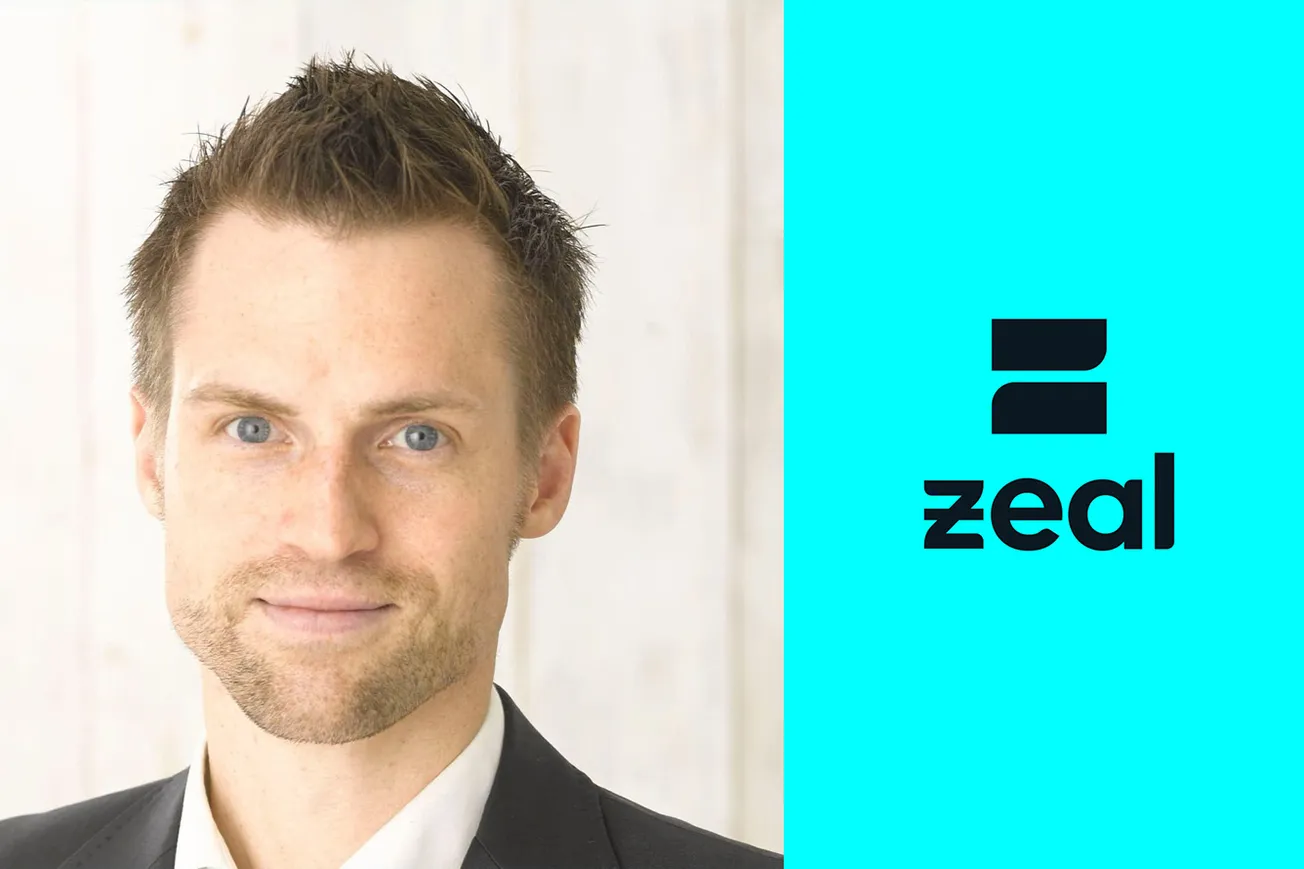Table of Contents
For our latest interview on The Founder, we’re excited to welcome Hannes Graah, Builder of Zeal. Zeal is redefining the crypto wallet experience, focusing on making cryptocurrency as practical and easy to use as money. With innovative features like an on-chain Visa Card, seamless on- and off-ramping, and advanced security measures, Zeal is setting a new standard for self-custodial wallets. Hannes joins us to share insights into the emerging concept of Open Finance (OpenFi), Zeal’s role in bridging traditional and decentralized finance, and how the platform is unlocking real-world utility for digital assets.
Q: Could you share your journey into the world of fintech and blockchain? What inspired you to create Zeal?
While at Revolut, our team transformed banking from a branch-based experience to a mobile-first reality. But this transformation revealed a deeper truth: modernizing the front-end wasn't enough. The real opportunity lay in completely reimagining the financial system's foundation. Zeal emerged from this insight not just as a self-custodial version of Revolut, but as something more fundamental – a tool to restore individual financial sovereignty while maintaining the convenience of modern banking. We're building a new financial paradigm where self-custody isn't just a feature, it's a fundamental right.
Q: You’ve emphasized Bitcoin’s original vision of peer-to-peer digital cash. How does this foundational principle influence Zeal’s mission and guide your product decisions?
Fifteen years after the Bitcoin whitepaper, we've witnessed the industry drift from Satoshi's revolutionary vision of peer-to-peer digital cash. The space has become dominated by speculation and meme coins, obscuring cryptocurrency's original purpose as a medium of exchange. At Zeal, we're not just building products – we're on a mission to reclaim this original promise. Our goal is to create a service that's easier to use than cash, safer than a bank, and comprehensive enough for your entire financial life. This isn't about incremental improvement; it's about fulfilling Bitcoin's original promise of genuine peer-to-peer digital cash.
Q: Many see crypto as “digital gold,” but you advocate for it as everyday money. Can you explain why shifting from speculation to real-world utility is so crucial for mainstream adoption, and how Zeal is pushing this narrative?
The current state of crypto reveals a striking disconnect: while many own crypto, few actually use it. The vast majority of the world's population – over eight billion people – have neither bought nor used crypto. Early adopters might focus on trading and investment, but the mainstream market needs something different: practical financial tools that solve real problems. At Zeal, we're not interested in creating another trading platform. We're building the tools to let crypto function as everyday money, making the transition from speculation to utility something that will seem obvious in retrospect.
Q: Self-custody can seem daunting to newcomers. How does Zeal simplify self-custody, making it feel like a fundamental right anyone can exercise, rather than a technical challenge?
Self-custody isn't a premium feature – it's a fundamental right that should be accessible to everyone. At Zeal, we've eliminated traditional barriers by replacing seed phrases with intuitive biometric authentication and Passkeys. We've abstracted away complex network fees and technical hurdles, but never at the expense of true self-custody. Our approach proves that you can make self-custody accessible without compromising on security or user control. This isn't just about making crypto easier to use; it's about empowering individuals with true financial sovereignty.
Q: You position Zeal as a wallet designed for real-life transactions—from buying coffee to paying rent—not just for trading tokens. What innovations enable Zeal to serve as true digital cash, bridging the gap between crypto and daily spending?
In building the bridge between crypto and everyday transactions, we recognized that true utility requires seamless integration with existing payment systems. Zeal achieves this by combining traditional payment rails like Visa and SEPA with native peer-to-peer capabilities. This isn't about choosing between old and new – it's about giving users the freedom to transact however they prefer. We're creating an environment where using crypto for daily purchases feels as natural as using a traditional bank account, while maintaining the core principles of self-custody and user control.
Q: OpenFi represents the convergence of traditional finance and decentralized finance. How do you envision OpenFi evolving, and how is Zeal ensuring that this future remains rooted in self-custody, user control, and everyday usefulness?
People have always had financial freedom with cash. The digitization of money was supposed to make our lives easier, but it came at the cost of that fundamental freedom. We believe this trade-off between convenience and freedom is a false choice. OpenFi isn't just about merging traditional and decentralized finance – it's about restoring the freedom that cash once provided, but in digital form. The building blocks developed over the last decade are finally letting us create financial services that are both convenient and truly user-controlled. Zeal's smart wallets exemplify this vision, offering full self-custody while seamlessly interfacing with both DeFi protocols and licensed financial services. This isn't about compromise; it's about giving people back the freedom they never should have lost in the first place.
Q: Seamless on- and off-ramping, and card payments with tokens. How has removing this friction point impacted user confidence and the overall adoption curve for crypto as money?
Most crypto adoption metrics today measure investment activity, not real usage. Many think that "buying bitcoin on Coinbase" is to use crypto. We're focused on driving true adoption – where people use crypto as actual money, not just as a speculative asset. When users make their first real-world purchase with crypto, they experience an "aha moment" that changes their entire perspective. They suddenly understand that crypto can be practical, everyday money. This shift in perception is crucial for mainstream adoption and represents the fulfillment of Bitcoin's original vision.
Q: As education is key to shifting perceptions from speculation to utility, how does Zeal plan to educate both newcomers and seasoned crypto users about the benefits of treating digital assets as everyday, spendable money?
Having reliable infrastructure and a seamless user experience is just table stakes. Users shouldn't have to worry about seed phrases or network details, but solving these problems isn't a selling point - it's the bare minimum. The real challenge now is delivering compelling value propositions that are genuinely superior to traditional alternatives. With Zeal, users get best-in-class cashback on card spending and competitive yields on their deposits, while maintaining full control of their assets. We pair these concrete benefits with careful education about financial sovereignty and security. It's about showing people why self-custody isn't just possible, but preferable.
Q: Looking ahead, how do you see Zeal evolving? What new features or partnerships are on the horizon to further promote crypto’s role as accessible, user-friendly digital cash?
The explosive growth in real-world assets (RWAs), from stablecoins to tokenized treasuries, validates our vision of practical, everyday crypto use. With major traditional finance players acknowledging tokenization as the future, we're positioned perfectly at the intersection of innovation and utility. Zeal isn't just participating in this transformation – we're helping to shape it, ensuring that as finance evolves, it remains true to the principles of user sovereignty and accessibility. The future we're building isn't just about tokenizing assets; it's about democratizing finance itself.










